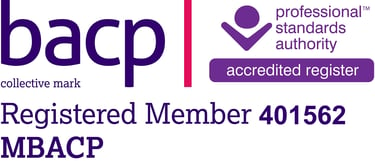Understanding Normalisation: A Vital Therapeutic Tool in Addressing Trauma from Domestic Abuse
7/18/20252 min read


What is Normalisation in Therapy?
Normalisation is a therapeutic approach that helps clients understand their emotional responses and behaviours within the context of their experiences. It allows individuals to recognise that their reactions are not abnormal but rather a natural response to traumatic events, particularly those related to domestic abuse. This understanding is crucial for clients as it helps to alleviate feelings of shame and isolation that often accompany trauma.
The Role of Normalisation in Healing from Trauma
For clients who have faced domestic abuse, normalisation serves as an essential tool. Many individuals internalise their trauma, leading to feelings of guilt and confusion about their emotional responses. Normalisation can assist clients in seeing that their reactions, such as anxiety, anger, or withdrawal, are common among abuse survivors. By framing their experiences in this way, clients can begin to reframe their self-perception and understand their emotions as valid and appropriate responses to their trauma.
Implementing Normalisation Techniques in Therapy
Therapists can incorporate several techniques to facilitate normalisation. One effective approach is through narrative therapy, where clients are encouraged to share their stories. This process helps individuals articulate their experiences, making it easier to recognise the connection between their trauma and their emotional responses. Additionally, therapists can use psychoeducation to inform clients about the psychological effects of trauma, emphasising that their feelings are natural and widely experienced. By doing so, clients can gain a clearer perspective on their healing journey and feel empowered to seek further support.
Incorporating normalisation into therapy not only aids in the understanding of individual responses to trauma but also fosters resilience. Clients are encouraged to realise that healing is a journey and that it's perfectly acceptable to seek help. Recognising that trauma responses are a shared experience can be a powerful catalyst for recovery and personal growth.
Ultimately, normalisation plays a pivotal role in reshaping the narratives of those who have endured domestic abuse. It validates their experiences and response patterns, promoting a sense of connection and understanding that can lead to healthier coping mechanisms. Through normalisation, clients can reclaim their narratives and embark on a path towards healing and empowerment, reframing their experiences in a way that encourages resilience and self-acceptance.






